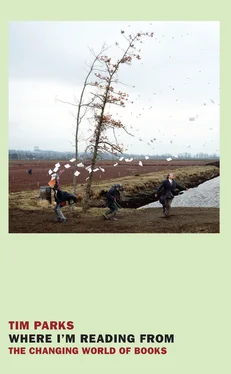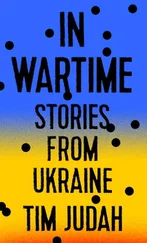For most of us, the set of behaviors we call personality or self forms initially in a family of three, four, or five individuals, then develops as it is exposed to the larger worlds of school and, in our teens perhaps, our town, our country. The richness of our individual personalities is a measure of the complexity of the relations that sustain us. A word spoken at home or school can be dense with nuance and shared knowledge in a way unlikely to occur in a casual exchange at rail station or airport, however fascinating and attractive an exotic traveling companion may be. This is not an argument for staying home, but for having a home from which to set out.
One of the functions of a canon or a national tradition has been to provide a familiar group of texts, stretching from past to present, constitutive of one’s own community and within which a writer could establish his position, signaling his similarity and difference from authors around and before him. Nuance is more telling than absolute novelty; the more the similarities, the more what difference there is will count. Hence, it might be more useful for a young English writer to be building up a knowledge of, say, Evelyn Waugh, Elizabeth Bowen, Anthony Powell, Barbara Pym, along with the writers they drew on and the later generation they inspired, than to be mixing Chinua Achebe with Primo Levi. This is not of course a reflection on the stature of these writers—it’s simply an observation that many of my students have read so disparately that they have little awareness of a body of texts tackling their own culture and within which they can place their writing.
It is not true, as many will claim, that students of creative writing all produce similar and similarly insipid texts. That is not my experience at all. However, with all the variety, two broad tendencies are evident; let me give extreme examples. One student of mine is writing a historical literary thriller set in the Mongol Empire of the thirteenth century. He is talented, he does his research; he knows how to establish a narrative rhythm, mix dialogue and description, keep the ball rolling and the suspense tightening. Still, it is only when he writes about the warrior hero’s being intimidated by his wife and attracted to his dead son’s widow that I suddenly feel that something really interesting is beginning to happen, something that matters to the author. This tormented little subplot clearly exists apart from any ambition or research that has gone into planning the book and might have formed the core of a different kind of novel, of which the English tradition offers a variety of models. But in my student’s narrative it risks derailing the larger locomotive of the saga. The student drops it and sticks to plan, describing great acts of hubris and colorful battles. I feel fairly sure he will find a publisher.
At the opposite extreme, another student tries to write about what it is like being part of a particular family and group of friends in a specific place in England now. He has a plot: the young hero has contracted HIV in a casual and drunken betrayal of the woman who seemed destined to become his wife. The novel charts the realignment of a web of relationships as the hero and those close to him very slowly learn to accept and deal with his changed reality. The highly specific habits of speech among friends and family are crucial in establishing the community, its vitality and resistance to change. A shift in the way two people address each other takes on great significance and poignancy. As a result, the book, if it’s ever published, will make more sense to readers who recognize these speech habits and feel at home with them. The difficulty for this young writer is that despite an excellent ear and fine memory for the idiosyncrasies of speech, he isn’t aware of a range of possible models that might help him structure this material and pace it well. I spend much of my time with him suggesting books and plays, old and new, and mostly English, which attempt similar representations and dramas.
In David Shields’s polemic against the traditional novel, or rather against those who continue to write it when he believes it has lost its validity, he frequently draws our attention to the fragmented character and accelerated speed of modern life, and the prominence of new media—particularly blogs, Facebook, and other social media. He links this to a general preference for what is both immediately contemporary and “true” or at least “documentary,” over traditional fiction. “The key thing for an intellectually rigorous writer to come to grips with,” he tells us, “is the marginalization of literature by more technologically sophisticated and thus more visceral forms.”
I find it hard to understand why the technologically sophisticated is necessarily more visceral. The viscera are visceral, the old primitive gut: this pain, this pleasure, now. At the same time, I share Shields’s weariness with novels that, however elegant and intelligent, appear merely to be going through the motions, to be aimed above all at creating the package that will lead to prominence on the world stage, or at least commercial success (the two are almost the same thing).
If there is a problem with the novel, and I’m agreed with Shields that there is, it is not that it doesn’t participate in modern technology, can’t talk about it or isn’t involved with it; I can download in seconds on my Kindle a novel made up entirely of emails or text messages. Perhaps the problem is rather a slow weakening of the sense of being inside a society with related and competing visions of the world to which writers make their own urgent narrative contributions; this being replaced by authors who take courses to learn how to create a product with universal appeal, something that can float in the world mix, rather than feed into the immediate experience of people in their own culture. That package may work for some, as I believe my student’s account of dramatic upheavals in the Mongol empire will for many readers; it has its intellectual ideas and universal issues: but it doesn’t engage us deeply, as my other student’s work might if only he could get it right. And this is not simply an issue of setting the book at home or abroad, but of having it spring from matters that genuinely concern the writer and the culture he’s working in.
When, after six months, my Italian students return from England, they have to prepare their thesis, usually a translation of a contemporary novel, complete with accompanying analysis. For this, I tell them, world literature will not be much help. Now they must read as much contemporary Italian writing as possible, whether fiction or nonfiction, journalism or essays, whatever: because it is into this immediate local and contemporary reality, with its ideas, stories, and debates, that the foreign novel they are translating is to be introduced; it is in this restricted national setting, Italy today, that the work must find its place and make sense.
“IF A BOOK is really good, it will reach out to everyone, the world over,” one of the directors of the Edinburgh Book Festival tells me. We’re attending a reception at the National Gallery of Scotland to celebrate a loan of nineteen Dutch paintings from the seventeenth century, housed for many years in glorious isolation in a stately home on the Isle of Bute, along with the publication of Dutch writer Herman Koch’s new novel, The Dinner . The director has been talking to me about the festival’s determination to bring foreign authors to Edinburgh—because the best writing should be available everywhere.
“It’s interesting,” I tell her, “that this belief in the universal appeal of fine literature exactly coincides with commercial convenience. The better a book is, the more it transcends its local origins, the more people it can be sold to worldwide.” Put like that, she feels, the position sounds cynical, yet she sincerely believes, and her experience confirms, that the best literary work always transcends borders.
Читать дальше












